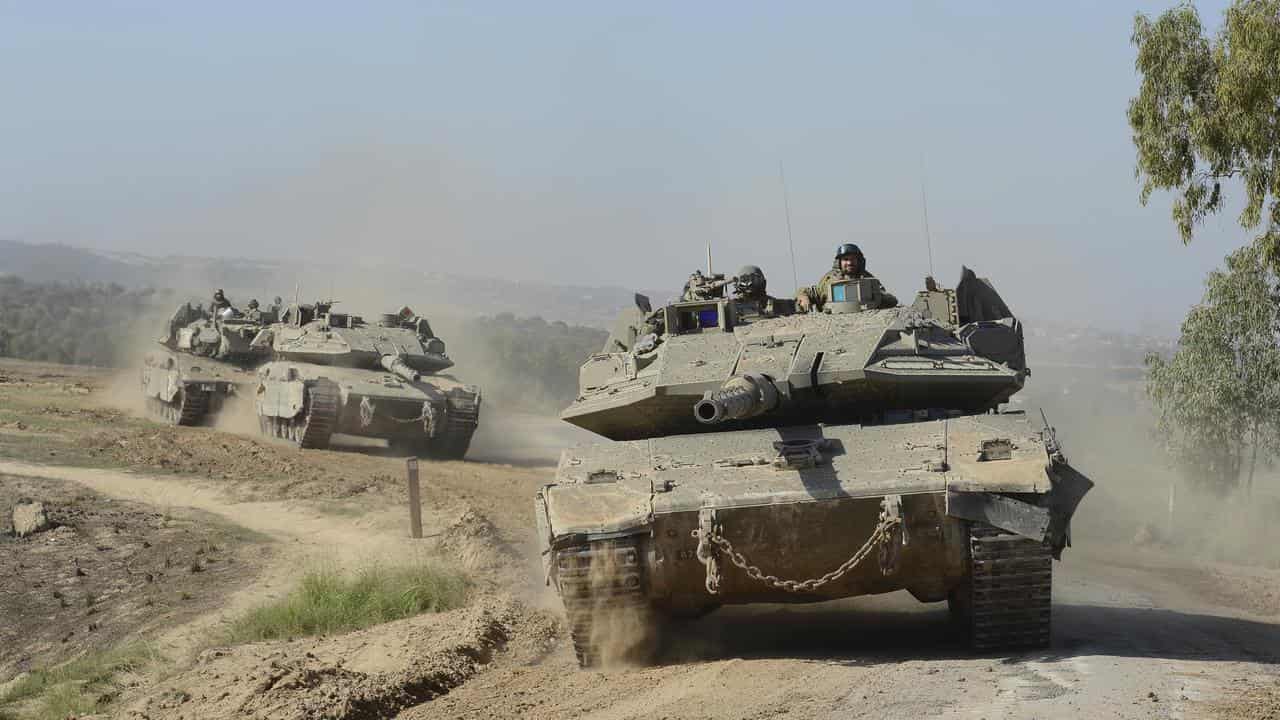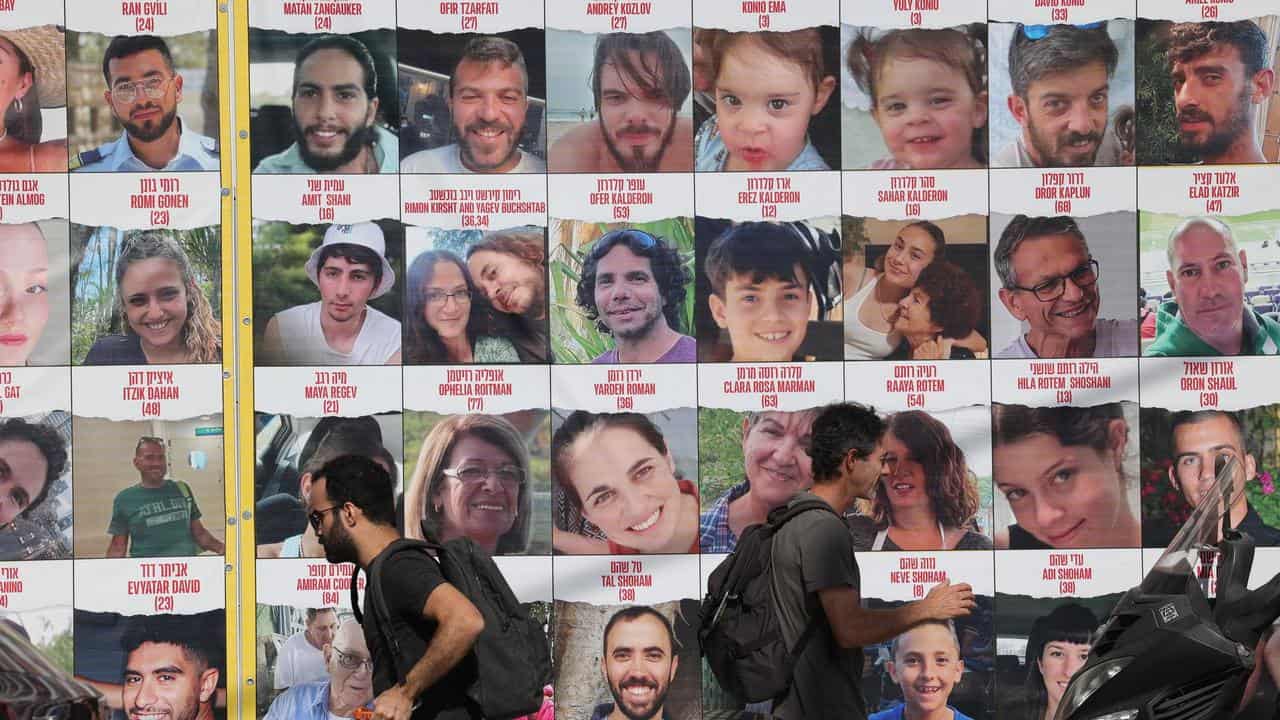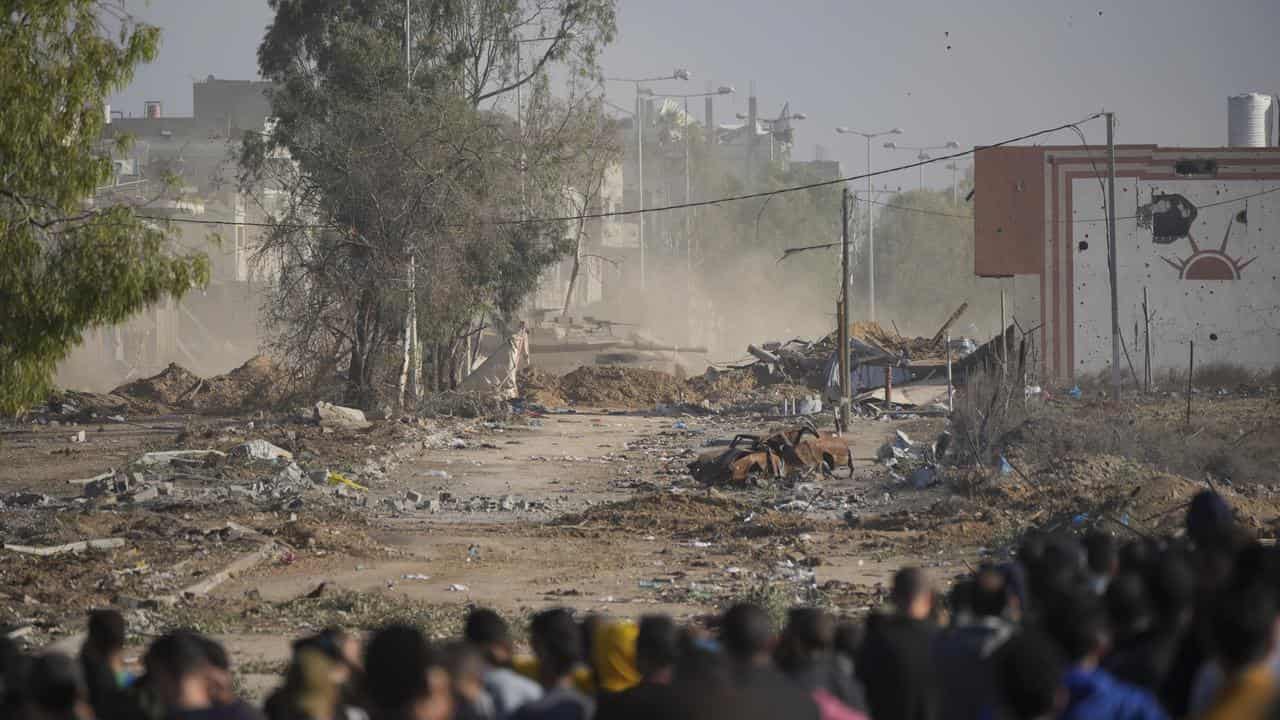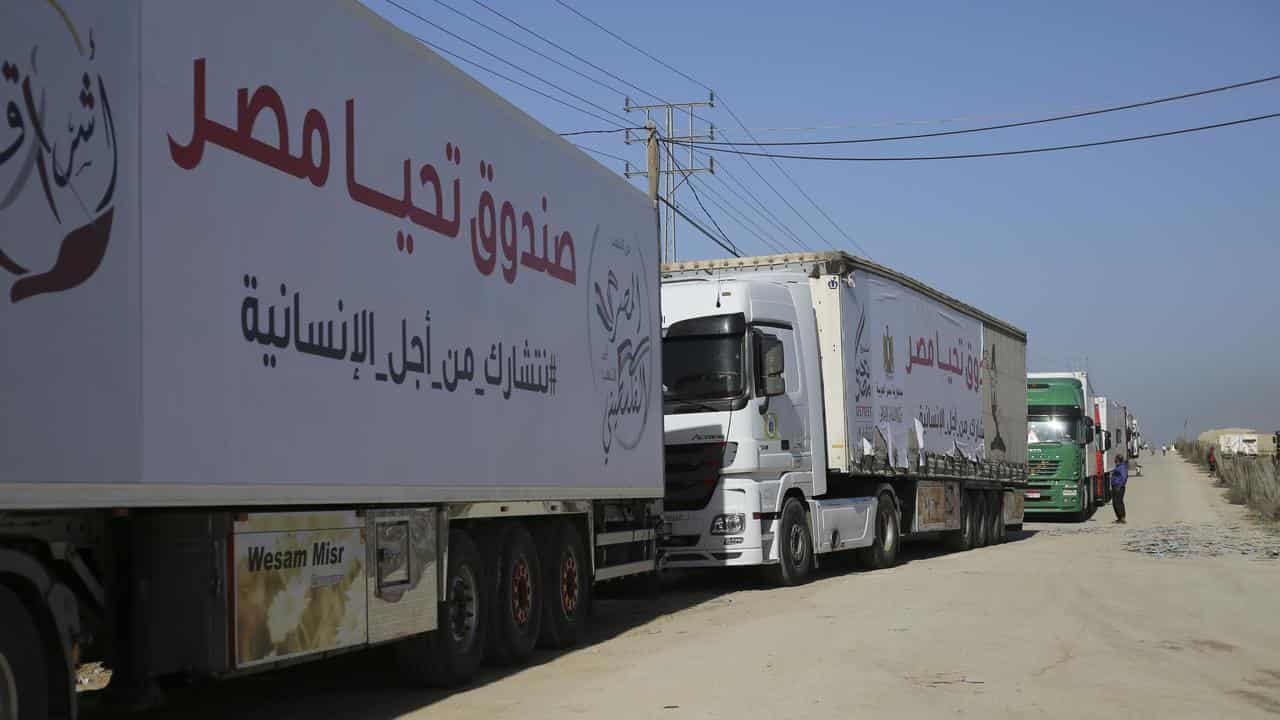
A temporary ceasefire between Israeli and Hamas forces took hold in the Gaza Strip on Friday, the first respite in 48 days of conflict that has devastated the Palestinian enclave, but both sides warn the war is far from over.
No big bombings, artillery strikes or rocket attacks were reported although Hamas and Israel both accused each other of sporadic shootings and other violations.
The ceasefire, which began at 7am (3pm AEDT) on Friday, involves the release of 13 Israeli women and children held hostage by Hamas in exchange for Palestinian prisoners held in Israeli jails.
Additional aid is to flow into Gaza, which has been gripped by a humanitarian crisis under weeks of Israeli bombardment that has killed thousands of Palestinians.
Reuters journalists saw Israeli tanks moving away from the Gaza Strip at the northern end, and aid trucks rolling in from Egypt at the southern end.
There was no sound of Israeli air force activity above northern Gaza, nor any of the contrails typically left by Palestinian rocket fire.
In Khan Younis town in southern Gaza, housing thousands of families displaced from the north, streets filled with people venturing out of home and shelters.

Hamas confirmed that all hostilities from its forces would cease, but Abu Ubaida, spokesman for Hamas's armed wing, stressed this was a "temporary truce" and called for an "escalation of the confrontation" on all fronts, including the Israeli-occupied West Bank.
The Israeli military also said fighting would resume soon.
"This will be a short pause, at the conclusion of which the war (and) fighting will continue with great might and will generate pressure for the return of more hostages," Israeli Defence Minister Yoav Gallant said.
The Israeli military also told Palestinians not to try to return to homes in the northern part of Gaza, which it described as a "dangerous war zone".
Israel launched its assault on Gaza after Hamas fighters burst across the border fence into southern Israel on October 7, killing 1200 people and seizing about 240 hostages, according to Israeli tallies.
Since then, Israel has rained bombs on the Hamas-ruled enclave, killing some 14,000 Gazans, about 40 per cent of them children, according to Palestinian health authorities.
Hundreds of thousands of Gaza's 2.3 million people have fled their homes to escape the violence as conditions grew ever more desperate, with food, drinking water, fuel and other basic supplies running short.

Gaza residents on Friday said the Israelis had dropped leaflets warning people not to travel north and had fired over the heads of some people trying to get back into Gaza City.
Hamas-affiliated Palestinian Press Agency SAFA reported "intense shooting" by Israeli forces east of Khan Younis and Rafah.
Al-Jazeera reported that two Palestinians were killed and another was wounded by Israeli soldiers shooting at people who tried to return to the north.
Sirens sounded in two Israeli villages outside the southern Gaza Strip, warning of possible incoming Palestinian rockets.
An Israeli government spokesman said Hamas had fired rockets in violation of the truce but there were no reports of damage.
The temporary ceasefire came about amid international concern over the fate of the hostages and the plight of Palestinian civilians trapped in Gaza.
Israel has rejected calls for a full ceasefire as benefiting Hamas, a position backed by the United States.

The first hostages, including elderly women, would be freed at 4pm (1am on Saturday AEDT), with the total number rising to 50 over the four days, Qatar's foreign ministry said.
Israel would release 39 Palestinians prisoners, among them 24 women and 15 teenagers, in the occupied West Bank in exchange for the 13 hostages due to be freed on Friday, a Palestinian official said.
Israel says the ceasefire could be extended beyond the initial four days if Hamas continues to release at least 10 hostages per day.
Under the agreement, desperately needed aid began to be delivered to Gaza, with 60 trucks carrying aid had crossed from Egypt at the Rafah border point by midmorning, according to border authorities.
Egypt has said 130,000 litres of diesel and four trucks of gas will be delivered daily to Gaza and that 200 trucks of aid would enter Gaza daily.




